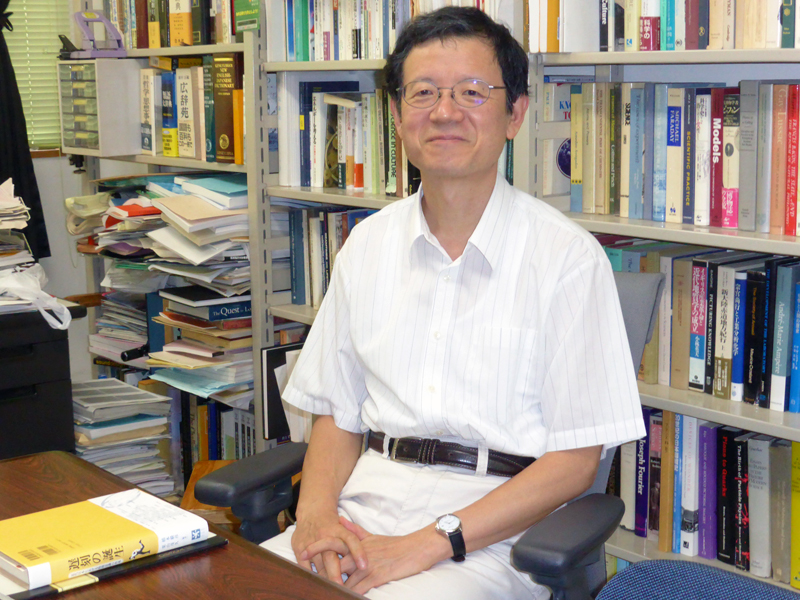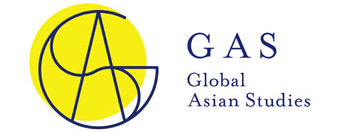An Interview with Prof. Hashimoto Takehiko (Professor of Graduate School of Arts and Sciences, the University of Tokyo)
Yijiang Zhong

Could you tell us your opinions on Japan studies at the University of Tokyo from the perspective of your discipline of history of science?
I first studied the history of French science at the graduate school of the University of Tokyo and then went to the graduate school in the U.S. to study the history of science and technology of the U.S. and Britain. After returning to Japan, I have also been working on the history of science and technology of Japan and abroad, having made presentations at conferences and symposiums both in Japan and overseas. While I am not exclusively specialized in Japanese studies, I am often expected by foreign scholars as an expert on the history of science of Japan. Although a “half specialist” of Japan, I am fortunate in having opportunities to be able to conduct research on shared topics with and learn from professors of Japan studies of the University of Tokyo.
In around 2000, I organized a joint research project at the International Research Center for Japanese Studies. Members of the joint research project were historians including Professor Suzuki Jun of the Department of Japanese History and Professor Nakamura Naofumi currently of the Institute of Social Science, both of the University of Tokyo. The theme of the book is about the origin of punctuality in modern Japan . We traced the implementation of modern disciplining at schools and factories. Certainly during the Edo period, people were not allowed to be late, but it is only after the Meiji period that time came to be measured and punctuality observed in the minute. You must come to class ten minutes before the start of school at 8 o’clock. You must get to the factory ten or twenty minutes before the start of work at 8 o’clock. This joint project resulted in the publication of the edited volume "The Birth of Lateness"(Chikoku no Tanjō).
The topic of time disciplining seems to be of great interest to foreign researchers. I have made many presentations on this topic in different places abroad. The foreign students of the AIKOM program also were quite interested in my course on the topic.
Are there a lot of international collaborations in the study of history of science?
Not many. Our joint research project at the International Research Center for Japanese Studies continued only one year, though other projects usually last more than one year. After that, I also participated in the joint research on innovation policy at the Research Center for Advanced Science and Technology of the University of Tokyo.
I also once collaborated with scholars of Europe and the U.S. on history of aerodynamics which is part of aeronautical engineering. It was an exciting experience for me. It seems that European scholars of history of science and technology conduct quite frequently international joint research and are producing continuous results.
From the angle of your discipline, what’s called Japan may or may not appear a problem. If any, could you share your opinions on “Japan studies” as a framework of knowledge production? For example, how does history of science talk about Japan?
From the perspective of history of science, issues for investigations change dramatically based on whether we are talking about before or after the Meiji Restoration. In the case of the period prior to the Meiji Restoration, such topics as Japanese mathematics or the introduction of Dutch Learning come to mind. Outside Japan, flourishing research is being done on the activities of European missionaries, especially Jesuit missionaries in China. I think all of these are interesting topics. In the case of post-Meiji Restoration periods, the introduction of Western science and technology as part of Japan’s modernization is a large topic, but it may be interesting to compare Japan with those “peripheral” countries and not just with the “central” countries of Western Europe. Though the United States may not be precisely regarded as “peripheral,” I am asked by my former teacher at the American university to work together on the comparative studies on the history of science and technology in Japan and the U.S.
What is your advice on building up the GJS network?
As a non-Japan specialist, I am not in the position to offer advice. But from my research experience of time disciplining, I hope GJS can discover interesting and socially important problems and topics, and where possible, conduct interdisciplinary and international collaborative research on such topics.



